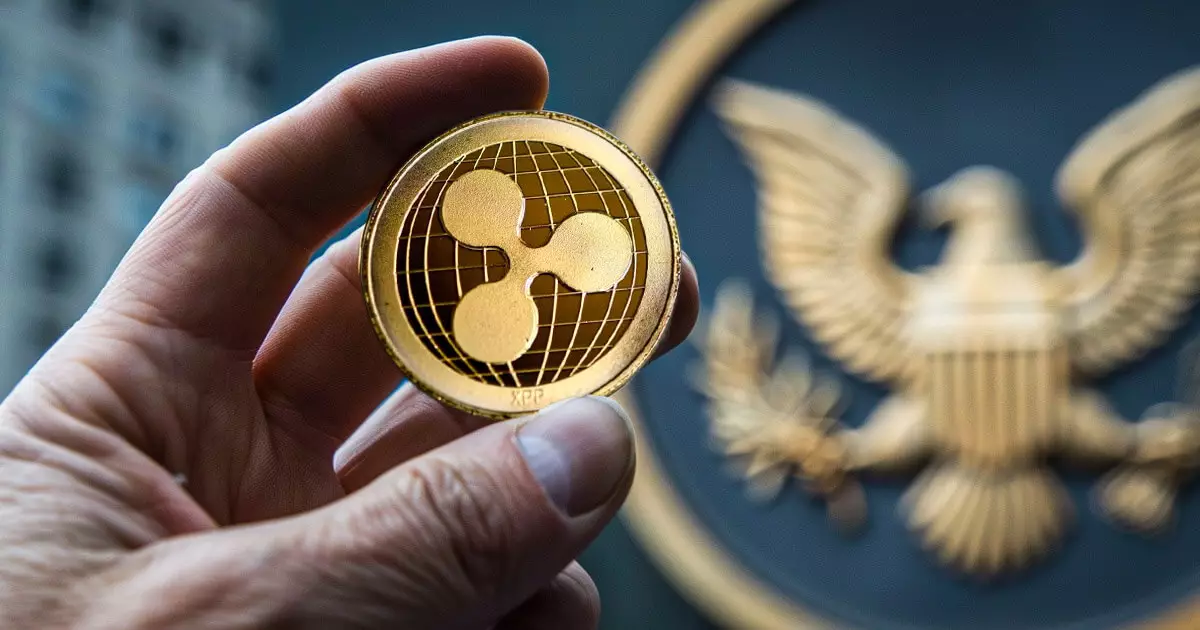The legal tussle between Ripple Labs and the U.S. Securities and Exchange Commission (SEC) has transitioned into a critical phase with both parties signaling their intentions to appeal recent court rulings. As of October 10, 2023, Ripple initiated a cross-appeal to the United States Court of Appeals for the Second Circuit. This move follows the SEC’s appeal earlier that month, aimed at reversing a significant court ruling proclaiming that Ripple’s programmatic sales of XRP to retail investors did not contravene securities laws. This ongoing saga has become a pivotal point for the cryptocurrency sector, emphasizing the complexities of regulatory frameworks and the uncertainty that surrounds digital assets.
Since the SEC initiated legal action against Ripple in December 2020, accusing the company of unlawfully offering unregistered securities amounting to $1.3 billion, the implications for cryptocurrency regulation have been vast. This lawsuit has served as an inflection point in discussions about how digital assets are classified and regulated. Judge Analisa Torres, presiding over the U.S. District Court for the Southern District of New York, ruled partially in favor of Ripple in July 2023, confirming that while XRP’s institutional sales did indeed violate securities laws, the sales to regular investors—specifically programmatic sales—were permissible.
This nuanced conclusion has made the case particularly compelling, as it distinguishes the treatment of retail versus institutional sales in the eyes of the law. Ripple’s argument contends that a majority of its sales did not offer securities, an assertion supported by Judge Torres’ ruling. The aftermath of this decision saw the SEC retaliating with a significant appeal to challenge these findings, seeking a more stringent financial penalty that echoed its initial demand of around $2 billion.
While Ripple initially faced an eye-watering sum of nearly $2 billion in penalties, the court ultimately reduced this figure to $125 million—still considerably higher than the $10 million Ripple had proposed as a settlement. The divergence between these figures highlights the friction in regulatory expectations and the perceived need for proportionate penalties versus the financial implications for companies operating within the burgeoning crypto landscape. Ripple’s Chief Legal Officer, Stuart Alderoty, has emphasized the importance of the cross-appeal in protecting their position, noting that no aspect of this case should be left unchallenged.
This ongoing financial battle poses intriguing questions about the resources that both Ripple and the SEC are willing to expend in pursuit of their objectives. As Ripple aims to quash what it views as the SEC’s overreach into cryptocurrency governance, the SEC maintains its narrative that clarity and stringent regulations are essential for protecting investors and maintaining market integrity.
The broader implications of this legal confrontation extend beyond Ripple alone; they beckon industry-wide concerns and interest among other cryptocurrency entities. Ripple’s CEO, Brad Garlinghouse, has recently accused the SEC of fostering an environment of chaos rather than offering constructive guidelines, illustrating the frustration many industry leaders feel toward regulatory ambiguity. His comments suggest a pressing need among crypto firms for more explicit regulations that could provide a clearer path forward without the specter of enforcement actions lingering overhead.
Both the appeals process and the public discourse around this case could set critical precedents for how cryptocurrencies are classified and governed in the United States. Furthermore, the outcome has the potential to influence not just Ripple’s future but that of a multitude of companies operating in the digital asset space.
Looking Ahead
As Ripple and the SEC prepare for their merged case, stakeholders in the cryptocurrency sector will undoubtedly watch attentively. The appeals process will unfold in the backdrop of shifting regulatory landscapes and growing calls for comprehensive frameworks that take into account the unique nature of digital assets. Ripple’s determination to challenge the SEC’s claims while asserting its position in the marketplace may resonate deeply with an industry yearning for resolution.
Ultimately, the stakes are monumental—not just for Ripple but for the future of cryptocurrency regulation itself. As both parties work toward a resolution, the outcome will likely redefine the parameters within which digital currency businesses operate, driving further clarity or potentially deepening the divide between innovation and regulation in the ever-evolving landscape of finance.














Leave a Reply